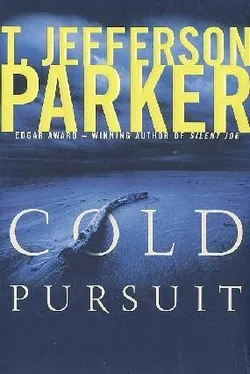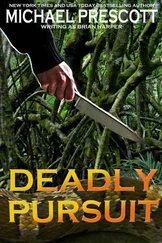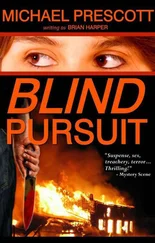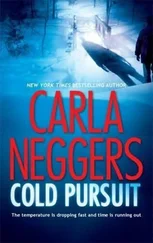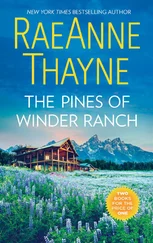"I'm not on your side," said Hector, cheerfully.
"No," said Case. "Not personal sides. But in the big scheme of things, I need you and you need me."
"What do I need you for?" asked Hector.
"I'm your employer. I'm a citizen. That's all I mean."
"What about Pete's new cannery," asked McMichael, "where the Tunaboat Foundation is now?"
Case shook his head and smiled. "The foundation guys were bright enough to realize the tuna industry isn't coming back to San Diego. Pete was dreaming. Pete tended to get overly romantic at times. Although, if you think about it, a cannery, a fleet, a commercial cargo harbor and a railroad would produce hundreds of millions of dollars over the years. Literally tons of money for jobs, families, civic improvements- the whole socioeconomic structure."
The coyotes burst into a frenzy of snarls and howls and high-pitched whines. It sounded to McMichael like there were fifty of them, just a couple of hundred yards away. Gidget lifted her head, but that was all.
"I hate those things," said Case. "Animals with no natural enemies get out of hand. Parasites. Animals need enemies. Keeps them in check."
"Same with people," said Hector.
"Exactly my point," said Case. "Listen, I've got a fenced pasture down there because Chrissy wants a horse. Beyond the pasture there are thirty-two buildable lots of two acres each, and three hundred acres of water district land that will never be developed. It's wild, unimproved scrub. I bought every lot, and I'll sell them someday and make tangible money for doing nothing but paying a little tax. Anyway, the pasture's got wildflowers and the rabbits love flowers, so they dug under the fence. They're all over the pasture around dusk, scores of them. Then the coyotes figured it out. Let me tell you about the coyotes. There are hundreds, thousands of them out there past the fences. This whole city is overrun with them. You can't shoot them. They have no natural enemies. They're everywhere. The fruit falls off all these trees and the rabbits and ground squirrels get fat, and guess what? In come the coyotes and they clean up. Biggest, heaviest coyotes you'll ever see. They'll look at you like you're in their way. They're living off the fat of the land, right here in the covenant."
"Covenant or not," said Hector, "they have to make a living."
"And that they do, Sergeant Paz. They dug the rabbit holes bigger and started coming under the fence at night. You wouldn't believe the sound of coyotes killing rabbits. It sounds exactly like the massacre that it is- wild and crazy and without any restraint. Well, I got sick of looking at the mess the next morning because a coyote will kill six or eight rabbits, take one and leave. Just leave the corpses behind. I wonder if they kill them for the fun of it."
Hector shrugged.
"So one night," Case said, "after the coyotes crawled in and started their slaughter, I walked down and rolled some rocks into the opening. Then I let Gidget here through the gate to see what would happen. That's sixty-five pounds of Staffordshire terrier, if you know the breed. It's the main ingredient of the pit bull. Her and four coyotes- big ones."
At the mention of her name Gidget lifted her bowling-ball head, then clunked it back to the patio.
Case sipped again. "I turned on the pasture floods and watched. Gidget trotted out there and took one look at those animals, then looked back at me. You should understand, Gidget's the sweetest, most easygoing animal I've ever seen. She's like she is now, all the time. But she took off after them, with this whole new posture . It was as if a thousand years ago her ancestors had learned something and she still remembered the instructions. Like she'd been waiting her whole life to show me what she could do. I figured, well, four on one ought to be interesting. But the coyotes didn't think so. They scrambled back to the hole under the fence but there was no hole. They split four different ways as fast as they could. Like they'd remembered some ancient bit of wisdom. But Gidget's fast, too, and she caught the fattest one by the leg, dragged it down, got it by the throat and did that pit bull thing. Their whole body shakes back and forth and their jaws wrench the opposite way so there's this awesome torque at the end of each shake, and she killed that coyote in less than ten seconds. Had a big slab of something in her mouth when she came up. Dropped it and took off after the next one. Five minutes later she'd killed them all. When I called her back she sat there with blood all over her, panting and wagging her tail at me. That taught me something."
The screen door opened again and McMichael saw Christine and Allen coming toward them, each with a tray.
"What did it teach you?" asked McMichael.
Case frowned and sighed. "To watch out for people who do what they're trained to do. Nothing scarier in the world."
"Like us?" asked Hector.
Case shrugged. "You two guys come to my home and ask if any of my business associates might have beat an old man to death. Fine- I can keep from laughing and try to help. But the commission, we're not the watchdogs. We don't take orders. We don't murder people. We make things happen for the good of San Diego first, and the good of ourselves second."
"I think you're more like the coyotes," said McMichael.
Case nodded amicably. "There's a better chance that one of your guys killed Pete than one of mine. That's my opinion. Do what you want with it. Now, will you excuse me and my wife to dinner? It won't be any good, but dessert is like nothing you've ever had."
***
Johnny pulled open the tremendous wooden door of his La Jolla mansion at quarter to eight. He was sweet from his bath and wearing his pajamas, dwarfed by the entryway behind him. McMichael stepped inside and picked him up and swung him gently around, then set him down and checked his cheek.
"Healing up well," he said.
"Mom put goop and a bandage on it."
"How are things?"
Johnny shrugged. "Okay. I got a piano. Come see it."
McMichael smelled the cooking and his dinnerless stomach gurgled. He looked down the long entryway. It had an arched ceiling and rough white plaster with inset tile. The chandelier was a brawny wrought-iron design that looked very old but ran on electricity. The rug runner was Persian, he had learned. Stephanie had described the home as "Moroccan modern." It looked to McMichael like a hotel he couldn't afford a night in.
Stephanie walked toward him with her no-nonsense tilt of head. Her dark brown hair was short now. She wore white jeans and a black knit tank, socks. She was back in her pre-Johnny shape, curvy and inviting.
"Hi, Stephanie," he said.
"Hey, Miker. When you're done with John, I'd like to talk to you. How about a drink?"
"I'm fine," he said.
McMichael beheld his son's new piano. It was placed, naturally, in the music room, amidst Dr. Clay Blass's guitar collection. The guitars stood up in their stands like the museum pieces they were, each signed- Johnny had shown him early on- by the pop musician who had once played it.
McMichael stepped between the Jimi Hendrix and the Tom Petty and ran his hand over the dark rich wood of the baby grand.
"It's for my birthday but I got it early," said Johnny. He sat at the instrument and lifted the fallboard. He tapped a few keys without apparent purpose or interest. "Got lessons, too."
"That's a nice gift. Your grandmother could play a little."
"Yeah," Johnny said, flipping down the door and sliding off the bench. "Want to see my room?"
"Absolutely."
Johnny's spacious room had its own bath and deck overlooking the Pacific. The rich red curtains were drawn. His bed was made up and turned down. It was amazing to McMichael how little remained of the possessions Johnny'd had just a year ago, when they broke up their household: a few wooden boxes from Libertad , a trunk of balls and gloves, a Batman poster, a little bookshelf CD player, a basketball trophy and a soccer team picture. They looked smaller here. McMichael thought of Victor Braga's quarters in the Horton Grand, of what it would be like to stay ten years old- or seven- forever.
Читать дальше
